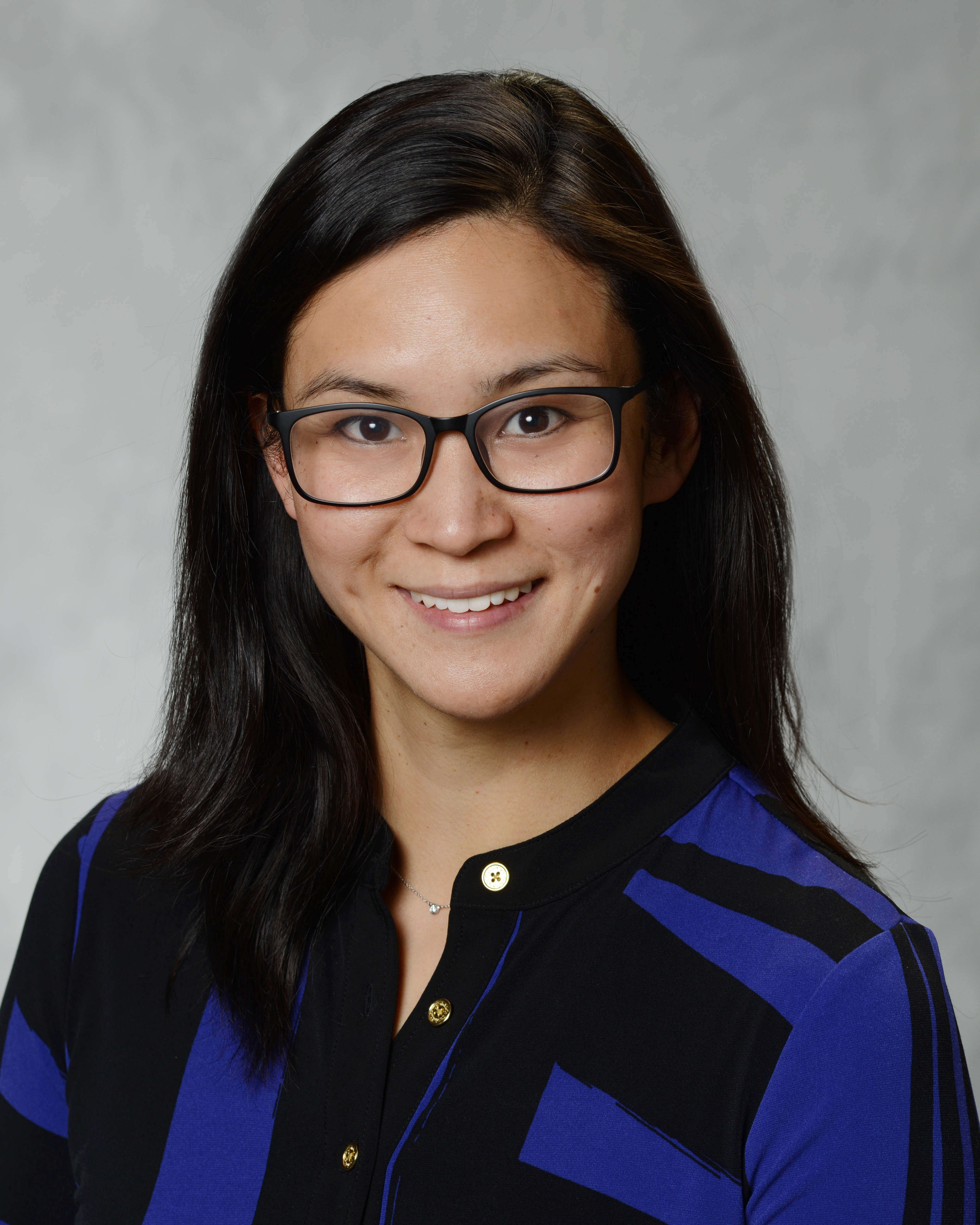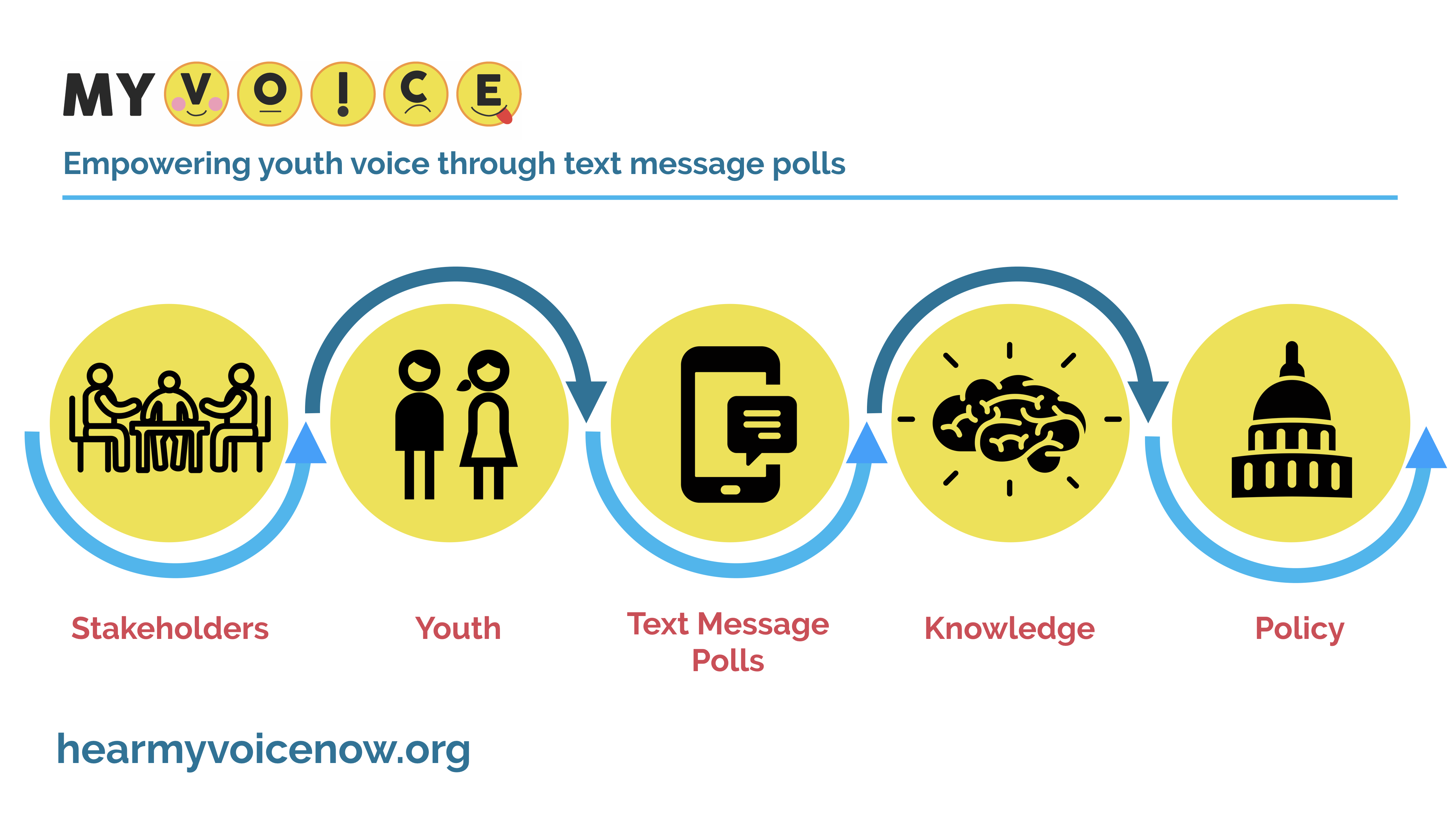Tammy Chang, M.D., M.P.H., M.S., assistant professor, will give a TED-style talk this month, at the MCubed Symposium, an event that will showcase some of the most innovative research and scholarship at the University of Michigan. MCubed is an experimental seed-funding program, developed in 2012 to provide venture-like jump start funds to “daring, boundary-crossing work” at the University of Michigan.
Chang’s adolescent health and well being research project, MyVoice, is a recipient of MCubed 2.0 seed funding. MyVoice is a study that deploys weekly surveys to adolescents aged 14-24 via text message. The surveys are brief and open-ended--usually 3 to 5 questions--and focus on different topics each week. From mental health coverage under the Affordable Care Plan, to sexual consent, to student loan debt and community policing, MyVoice seeks to give youth a voice on issues that affect them.
The project has nearly 1,500 consented participants from around the country, primarily recruited through targeted social media advertising, a technique she first developed in her work with pregnant women. She published a paper in the Journal of Medical Internet Research that compares online versus in-person recruitment methods. The current project has a recruitment goal to create the first nationally-representative sample of adolescents for rapid polling research.
“MyVoice bring together amazing collaborators from across the University to answer a research challenge that we hope will change the way that research can impact policy for youth,” Chang says.
MyVoice was developed as a response to a critical challenge in health policy research. Chang and her co-investigators, Michelle Moniz, M.D., assistant professor of obstetrics and gynecology, and Kendrin Sonneville, Sc.D., R.D., assistant professor of nutritional sciences at the School of Public Health, were frustrated by the slow pace of traditional, peer-reviewed academic research, and its inability to swiftly respond to the fast-paced, outcomes-driven work of policy change. MyVoice seeks to address this challenge by 1.) utilizing new technology for more rapid data collection and 2.) taking a design thinking approach to research methodology and study recruitment.
The tools of the trade
The project relies on a combination of two technologies to deploy their weekly surveys. The first is popular online survey software Qualtrics. The second is Textizen, a cloud computing platform for deploying large-scale, automated SMS messages. Recently, Textizen’s parent company, Granicus, featured the MyVoice project as a success story of their Interactive Text product.
Integral to the project's success has also been Chang’s approach to leadership. As the primary investigator, she has cultivated a robust research team, which includes a network of faculty, residents, postdoctoral fellows, including Melissa DeJonckheere, Ph.D., U-M medical students, graduate students, undergraduates, high school-aged youth, and staff.
Together, members of the team participate in weekly group work session, as well as one-on-one updates with Chang. In the weekly work sessions, members of the MyVoice team collaboratively critique new surveys, which are often developed in pairs, by MyVoice team members. discuss research questions and to add to the queue of over 90 surveys.
In survey development work sessions, it is not uncommon to hear rousing debates between high school youth, undergraduates, medical students, and faculty, on the rhetoric, cultural linguistics, and research methodology of a single phrase in a survey question. In these discussions, student, faculty, and staff input is on equal footing, and often, the youngest members’ input has the most weight--as the study’s participant population are U.S. adolescents, aged 14-24.
Their unique approach to survey development draws from lean and design thinking philosophies. Work is highly collaborative; discussion is non-hierarchical; and ‘sprints’ allow for many iterations on every survey instrument.
Mixed methods data analysis, in the age of Big Data
With over 90 different survey sets and nearly 1,500 consented participants, MyVoice is taking new and automated approaches to data analysis. Chang has partnered with VG Vinod Vydiswaran, Ph.D., a computer scientist and assistant professor of Learning Health Sciences, to develop natural language processing algorithms that can process the large amounts of qualitative data. Paired with the mixed methods expertise of Timothy Guetterman, Ph.D., assistant professor in the department of family medicine, and family medicine postdoctoral fellow Melissa Dejonckheere, Ph.D., MyVoice is pioneering an approach that blends qualitative coding with automated categorization.
DeJonckheere has a forthcoming paper on MyVoice’s unique methodological approach, which will be published later this year.
With her co-investigators, Tammy Chang will present MyVoice at the MCubed Symposium on Wednesday, November 1st, 2017 at Rackham Auditorium. Several members of the MyVoice team will present at the 2017 North American Primary Care Research Group (NAPCRG) annual meeting this month. For more information about MyVoice, see their website and uofmhealthresearch.org recruitment page.
[11/3/17 - Article updated to include photo (first above) of Tammy Chang presenting MyVoice at MCubed Symposium]
Browse the latest clinical informatics and technology research from the department of family medicine.







